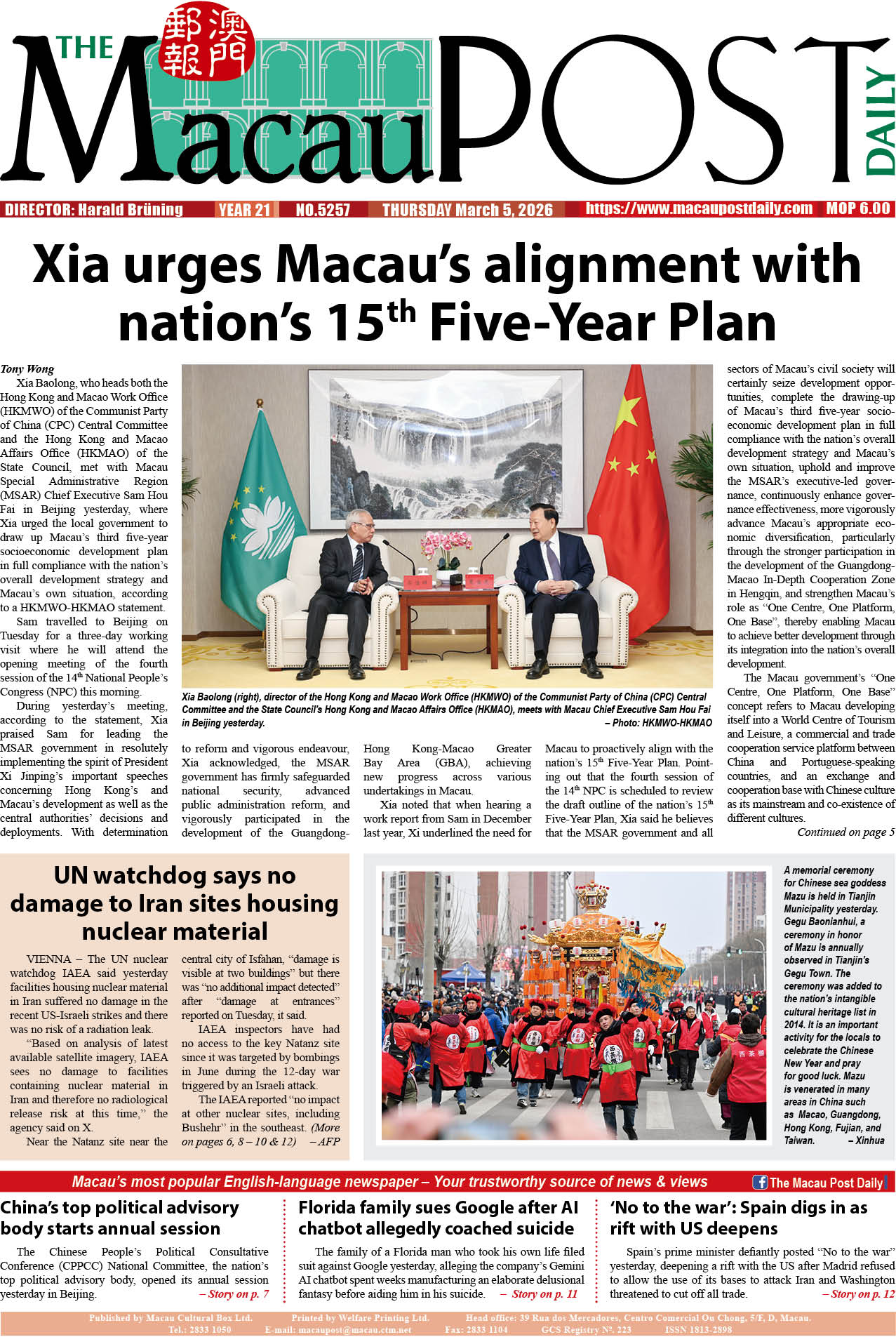Secretary for Security Wong Sio Chak said yesterday that Macau’s police forces will assess the possible risks to the safety landscape for the Legislative Assembly’s (AL) upcoming direct and indirect elections later this year, in the wake of the recent amendments to Hong Kong’s election system, adding that Macau’s police forces will be deployed in a way that ensures that the elections in September will be carried out smoothly.
Wong made the remarks while speaking to reporters at the Services Platform Complex for Commercial and Trade Cooperation between China and Portuguese-speaking Countries in Nam Van after yesterday’s opening ceremony of the “National Security Education Exhibition”, marking the country’s sixth National Security Education Day. April 15 is National Security Education Day as stipulated by the country’s National Security Law, which came into force in July 2015.
Wong said that the 2019 anti-government protests in Hong Kong resulted in a raft of issues in Hong Kong that challenged national security, and the Hong Kong independence slogans were challenging the nation’s sovereignty, security and development interests, adding that the recent amendments to Hong Kong’s election system are a strong and effective reaction to all such predicaments.
Wong said that Macau’s public security forces will assess whether the fact that Hong Kong’s election system has been amended could result in any abnormalities adversely impacting Macau’s safety landscape, in particular for the local legislature’s upcoming direct and indirect elections. But he was quick to add that Macau’s police forces have so far not received any intelligence about potential risks to the election process.
Wong said that Hong Kong’s election system amendments could be “an inspiration for Macau to learn and take reference”. But he was quick to add that for the time being Macau has no intention of changing its election system like it has been changed in Hong Kong.
3 major national security tasks
Wong also said that currently Macau has three major tasks to ensure national security. The first one is that the government will not let its guard down in its COVID-19 prevention and control work considering the still serious COVID-19 pandemic, including the serious COVID-19 epidemic in neighbouring regions.
According to Wong, the second one is for the Macau government to continue guarding against external forces against the country. Wong said that many countries are constantly doing things against China with the aim of undermining the country’s development, adding that Macau, as an inalienable part of the nation, has its own duty towards safeguarding national security.
The third one, according to Wong, is for the Macau government to continue tackling the potential risks to Macau’s cybersecurity.
Meanwhile, Wong also pointed out that Macau’s national security law – the Law on the Defence of National Security enacted in 2009 – is merely a “framework” law listing the seven crimes on endangering national security stated by Article 23 of the Macau Basic Law and their penalties, because of which, he said, the local national security “is not a complete law”, which means that this “framework” law could not be effectively implemented without various other supplementary pieces of legislation in place.
Wong said that the Macau government started to draft pieces of legislation in 2017 with the aim of constantly improving Macau’s legal system on national security, such as the enactment of the cybersecurity law in 2019 and the enactment of amendments to the Judiciary Police’s (PJ) operation last year formally granting it power to investigate cases involving national security, apart from the establishment of the Commission on the Defence of National Security of the Macau Special Administrative Region (MSAR) in 2018.
Secretary for Security Wong Sio Chak (left) speaks to reporters at the Services Platform Complex for Commercial Cooperation between China and the Portuguese-speaking Countries after yesterday’s opening ceremony of the “National Security Education Exhibitio”, as Macau Customs Service Director-General Vong Man Chong looks on. Photo: Prisca Tang








